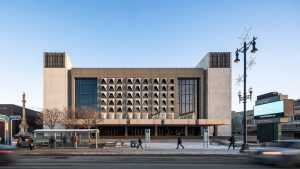Midway through the first half of 2015 there are definite signs that the economic fundamentals driving the B.C. economy have strengthened over the past year.
From an external perspective, B.C. foreign sales rose by 6.8% in 2014 primarily on account of a stronger growth of exports to the U.S., which rose by 15.8% during the year following a 10.8% year-over-year increase in 2013.
By far, the major contributor to this gain in U.S. exports was a 47.6% gain in exports of natural gas that was augmented by strong gains in lumber (+19.2%), electricity (+26.4%) and wood pulp (+17.3%).
This rise in U.S. exports was accompanied by increases in foreign sales to South Korea (+17.0%) and India (+10.3%) which more than offset a slowdown in the province’s foreign sales to China (-4.1%) and Japan (-9.0%).
Turning to the domestic economy, against a background of record low interest rates, there was a solid 62,400 gain in full-time employment over the past twelve months and a significant increase in real disposable incomes stemming from lower gasoline prices. Consumer spending, reflected by retail sales, rose by 5.8% through November 2014 compared to an increase of 1.9% year over year in the first eleven months of 2013.
Driven by the same fundamentals as consumer spending and supported by a recent increase in net migration, housing demand — indicated by existing home sales — ended 2014 on a very strong note.
For the year as a whole, home sales totaled close to 84,000 units, which was up by 15% compared to 2013. Driven by sustained strong demand, housing starts over the past six months are up by 2.9% compared to the same period in the previous year largely due to stronger sales of single, semi and row housing units.
Consistent with the above noted strong fundamentals, residential building permits over the past six months are up by 12.0% year over year due to gains in applications to build both single (+13.7%) and multiple (+11.4%) dwellings.
In addition, the value of non-residential building approvals in the final quarter of 2014 increased by 73% compared to the third quarter due to very strong gains in institutional and commercial building approvals.
Looking ahead, a number of current and forward-looking economic indicators on both sides of the Canada/U.S. border suggest the B.C. economy will exhibit faster growth in 2015 and 2016 than it did in 2014.
First, the recent strengthening of U.S. consumer confidence, the U.S. Index of Leading Indicators and non-farm payrolls reinforce the view that growth in the U.S. will be stronger this year (+3.2%) than it was in 2014 (+2.4%).
Second, real disposable incomes should continue to benefit from low oil prices. Third, the recent decline in interest rates and the prospect for a further cut should underpin housing demand and consumer spending through the remainder of this year and into 2016.
Given the positive outlook for the U.S. and the province’s strong domestic fundamentals, we expect the B.C. economy to grow by 2.8% and 3.4% in 2015 and 2016 respectively, following a gain of 2.4% in 2014.










Recent Comments
comments for this post are closed